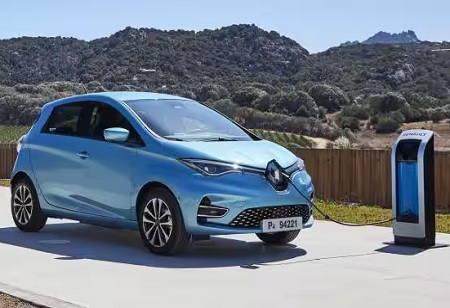
Renault Boosts EV Drive with Strategic Chinese New Energy Partnerships

 Renault, the French automaker, demonstrated significant traction in the European automotive sector by surpassing a global sales volume of 2.235 million units in 2023. Within Europe, Renault witnessed a notable surge in electric vehicle (EV) sales, reaching 270,362 units, marking a 19.7% year-on-year growth. Additionally, its hybrid vehicle sales soared to 185,666 units, reflecting a remarkable 62% increase compared to the previous year. This impressive progress is credited to Renault's strategic corporate transformation launched in 2021.
Renault, the French automaker, demonstrated significant traction in the European automotive sector by surpassing a global sales volume of 2.235 million units in 2023. Within Europe, Renault witnessed a notable surge in electric vehicle (EV) sales, reaching 270,362 units, marking a 19.7% year-on-year growth. Additionally, its hybrid vehicle sales soared to 185,666 units, reflecting a remarkable 62% increase compared to the previous year. This impressive progress is credited to Renault's strategic corporate transformation launched in 2021.
Renault's Ampere initiative aims to streamline vehicle research and development to match the rapid pace seen in Chinese automotive firms, reducing the typical European timeline of four years to just two. During a recent visit to Renault's EV showroom on the Champs-Elysees in Paris, 36Kr noted the presence of two compact pure electric SUVs, namely the Megane E-Tech and Scenic E-Tech, equipped with an advanced in-car system featuring intelligent functionalities and applications.
Additionally, Renault plans to commence production of its latest B-class EV, the Renault 5 E-Tech, in 2025, as part of its electrification strategy aimed at capturing the European market. Despite this focus, Renault confronts stiff competition from rivals such as Tesla and SAIC Motor's MG brand, particularly in its native France.
In efforts to rival Tesla, Renault aims to bolster its cost-control measures for EVs with a strategy centered on enhancing collaboration with Chinese new energy firms. Renault's CEO, Luca de Meo, underscored the advanced nature of China's EV ecosystem, stressing the importance of closer ties with Chinese enterprises. Notably, Renault's battery factory for the Renault 5 E-Tech in France has forged a partnership with Chinese battery company AESC for technology transfer and advancement.
Renault's partnership with Geely extends to vehicle architecture platforms and powertrains, with anticipated financial benefits as Renault targets a 50% reduction in EV production costs by 2027. In China's saturated new energy market, collaboration with leading European automakers offers access to cutting-edge technologies and potential profit boosts.
Renault remains committed to its complete vehicle business in China despite halting its joint ventures with Dongfeng and Jiangling Motors, resulting in the cessation of domestic fuel vehicle sales and retaining only eGT's export business. Su Weiming, CEO of Renault China, emphasized in an interview that the Chinese EV market is undergoing a substantial adjustment, indicating that it is not currently suitable for manufacturing complete vehicles in China.
Su added that Renault’s new business model is based on R&D, which in turn is based on the supply chain and ecosystem. “When you have all of these, creating a new brand, manufacturing a car, becomes relatively simple". According to 36Kr, Renault China is undergoing internal restructuring under Su’s leadership, and Renault will also expand its team in China.

